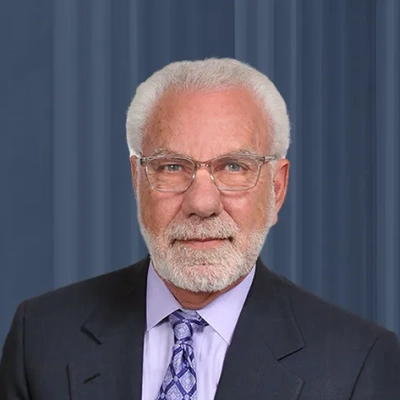Stepping into a leadership role for the first time can be both exciting and challenging. We asked industry experts for one piece of advice they would give to someone who is entering a leadership role for the first time. Here are what they consider to be the essential qualities of an effective leader—and how those skills can be developed.
- Build a Team, Don’t Be the Hero
- Leverage Strengths for High-Performing Teams
- Embrace Discomfort as Growth
- Focus on Elevating Your Team
- Listen First, Lead with Integrity
- Create Conditions for Others to Thrive
- Engage in a Listening Tour
- Lead Yourself to Lead Others
- Earn Influence Through Clarity and Empathy
- Slow Down and Build Trust
- Cultivate Self-Awareness and Cultural Fluency
- Find a Mentor for Leadership Growth
- Set Clear Direction and Enable Others
- Seek Mentorship to Strengthen Leadership Skills
- Own Tough Decisions with Responsibility
- Communicate Clearly to Build Team Trust
- Reflect on Past Leadership Experiences
- Take It Slow and Communicate Often
- Listen, Admit Mistakes, and Ask for Help
Essential Tips for First-Time Leadership Roles
Build a Team, Don’t Be the Hero
Don’t try to be the hero. Focus on building the team.
Too many first-time leaders think leadership is about having all the answers, being decisive, strong, smart, and in control.
However, in reality, great leadership is in many ways simpler than that. It starts with listening.
Your job isn’t to prove yourself; it’s to create an environment where others can thrive. That’s the shift: from individual contributor to builder of culture, from doer to multiplier.
I’ve worked with many new managers through that shift. What I’ve seen, time and again, is that the most effective leaders aren’t the ones who know everything. They aren’t the loudest or most confident. They’re the ones who create space. They make it safe for people to speak up. They bring clarity when things feel messy. They build trust by showing up with consistency, not perfection. That’s what makes a team feel like a team, not just a group of individuals trying not to mess up.
So if you’re stepping into leadership for the first time, start there.
Start by listening more than you speak. Don’t rush to fix; coach instead. Set clear expectations, and then get out of the way. When mistakes happen (because they will), don’t look for someone to blame. Stay curious. Lean in. Have the hard conversations.
At some point, you’ll feel like you’re in over your head. That’s normal. Leadership is uncomfortable because it’s growth. But don’t mistake discomfort for failure. It’s a sign you’re in the right place, doing the right work.
Above all, work on your emotional intelligence. Self-awareness, empathy, and the ability to manage tension aren’t extras. They’re the core of effective leadership.
Leadership isn’t a title. It’s a skill. One you build through practice, feedback, and a willingness to grow. That’s how you earn trust. That’s how you build high-performing teams. And that’s how you become the kind of leader people never forget.
 Fahd Alhattab
Fahd Alhattab
Founder & Leadership Development Speaker, Unicorn Labs
Leverage Strengths for High-Performing Teams
Stepping into leadership often brings the illusion that you need to do everything and have all the answers. In reality, your greatest power lies in self-awareness. Understanding your own strengths, what you do effortlessly and confidently, and your weaknesses or tendencies is essential. When you know your blind spots, you stop them from silently steering your decisions and actions.
But here’s a powerful truth: just because you’re good at something doesn’t mean it fills your bucket. Some tasks we’ve mastered out of necessity, not joy. And those can slowly deplete us, even if we excel at them. The beauty of a well-composed team is that someone else might light up doing the very thing that drains you. When leaders and teams understand not just what people can do, but what energizes them, they can build more sustainable, joyful performance.
Once you’ve looked inward, the next move is to genuinely know your team. What energizes them? Where might they struggle? Some members shine in creativity, others in operational execution, while others may bring emotional intuition or dependable consistency. These traits are not just personality markers; they’re the team’s core strengths.
Real leadership excellence happens in the blend: building a team that intentionally plays to their strengths. When you distribute tasks based on strengths rather than chasing uniform behavior, you create a high-performing rhythm. It’s not about delegating evenly; it’s about delegating for synergy. Teams that balance visionaries with executors, emotional connectors with analytical thinkers, and steady supporters with risk-takers, become high-performing.
This approach invites strong emotional intelligence and respect. Instead of forcing everyone into the same mold, you’re inviting each person to perform in their sweet spot. That doesn’t mean ignoring stretches; rather, you provide support and coaching in a way that meets their needs. Leaders who structure growth around individual strengths inspire both accountability and compassion. Over time, small stretch opportunities build both skills and confidence, without draining motivation.
Teams become powerful not because everyone is the same, but because their strengths are leveraged. By anchoring leadership in self-awareness, team insight, and thoughtful composition, you cultivate an environment where talent flourishes and collaboration is the norm. That’s not just performance. That’s legacy.
 Gearl Loden
Gearl Loden
Leadership Consultant/Speaker, Loden Leadership + Consulting
Embrace Discomfort as Growth
If you’re stepping into a leadership role for the first time, here’s something to keep in mind: the biggest shift isn’t in your job title; it’s in who you need to become. What made you successful before — your technical expertise and ability to deliver — won’t be what carries you now. Leadership means stepping back from the work and making space for others to thrive.
One of the hardest parts? Not having all the answers. You’ll be expected to make decisions with limited information, represent the organization before you feel ready, and operate in the gray areas. But here’s the thing: leadership doesn’t wait until you feel confident. You grow into it by doing the job, trying, learning, and adjusting.
The strongest leaders I’ve seen aren’t the ones who excel from day one. They’re the ones willing to experiment. They test out new approaches. They ask questions. They build relationships outside their usual circles. And when things get uncomfortable, they don’t panic; they pay attention. Because discomfort doesn’t mean you’re off track. It usually means you’re growing.
So if you’re in that early stretch: stay curious, keep moving, and don’t expect it to feel smooth. The shift is real, but it’s how you become the kind of leader others want to follow.
 Steven Segal
Steven Segal
Business Coach, Business Coach Sydney
Focus on Elevating Your Team
Stepping into a leadership role for the first time can be both exciting and overwhelming. One of the most important mindset shifts to make is this: it’s no longer about you — it’s about your people. Leadership isn’t about having all the answers or being the loudest voice in the room; it’s about creating the conditions for your team to thrive. Your success is now measured by their growth, their wins, and their ability to take on challenges with confidence.
The essential qualities of an effective leader (empathy, clarity, humility, and accountability) are all rooted in service. To develop these, start by listening more than you speak. Ask questions. Learn what motivates your team. Remove obstacles from their path. Celebrate their wins and own the setbacks.
True leadership is about elevating others. When you focus on helping your team succeed, you’ll not only build trust and loyalty, but you’ll also create a culture where performance, innovation, and engagement flourish.
 Scott D’Amico
Scott D’Amico
President, Communispond
Listen First, Lead with Integrity
Leadership, much like a trial, is won through a combination of unwavering resolve and genuine human connection. If I could offer one piece of advice to someone stepping into a leadership role for the first time, it would be this: master the art of listening before you assert the right to lead. In my line of work, I cannot effectively represent a family until I have truly heard their story, understood their suffering, and grasped their needs.
Similarly, a new leader must first understand the strengths, challenges, and aspirations of their team members. Resist the urge to immediately implement sweeping changes. Instead, invest time in one-on-one conversations, observe the existing dynamics, and learn the “why” behind the current processes. This foundation of understanding is not a sign of weakness or indecision. It is the most critical preparatory step for building trust and earning the respect necessary to lead effectively.
The essential qualities of an effective leader are the same in the boardroom as they are in the courtroom: integrity, empathy, and decisive communication. Integrity is your bedrock. Your team must know that your actions are guided by an unwavering ethical compass. Empathy is the ability to connect with and understand the perspectives of your team, much like I must connect with a jury. Finally, decisive communication is crucial. After listening and deliberating, a leader must be able to clearly and confidently articulate the path forward, ensuring everyone understands the mission and their role in it.
These skills are not innate. They are honed through deliberate practice. Develop integrity by making your word your bond in every small commitment. Cultivate empathy by actively seeking out and listening to viewpoints that differ from your own, just as I must anticipate an opposing counsel’s arguments. Sharpen your communication skills by preparing for important conversations as diligently as a lawyer prepares for a closing argument — anticipate questions, clarify your key points, and articulate a compelling vision. Leadership, at its core, is a craft that demands continuous learning and refinement, driven by a commitment to the people you serve.
 Chris Limberopoulos
Chris Limberopoulos
Founder, The Florida Law Group
Create Conditions for Others to Thrive
One of the most valuable things I’ve learned is that leadership isn’t about having the answers — it’s about creating the conditions where others can thrive. For someone stepping into a leadership role for the first time, my advice would be: start by listening more than speaking.
The essential qualities I look for in leaders are humility, clarity, and adaptability. Humility keeps your ego in check. Clarity helps others align around a vision. And adaptability ensures you evolve with your team and your environment, not against it.
These aren’t traits you either have or don’t — they’re practices. You build them by being willing to unlearn, by surrounding yourself with people who challenge you, and by staying open to feedback, even when it’s uncomfortable.
Leadership is earned every day, not granted by a title. If you stay curious, stay human, and focus on making the people around you better — you’re already on the right track.
 Mathieu Sroussi
Mathieu Sroussi
Co-Founder & CEO, SmartenUp
Engage in a Listening Tour
There’s a reason you’re being promoted into a leadership role: that said, as a first-time leader, you don’t know everything, and even as an experienced leader, you don’t always know everything.
It’s critical that you engage with people within the organization to understand their perspectives and go on a bit of a listening tour as you’re getting started. You have to understand the landscape and you have to understand what you need to know in order to be successful.
A good leader can listen to others and then use that information to help them make effective decisions, both of which are qualities of a leader. If you’re looking to develop your skills and acumen as a leader, learning from experts, as well as people immediately around you who have strengths in different areas, can be a great springboard and can help you mitigate a lot of the mistakes that you don’t need to needlessly make. Learn from the mistakes and failures of others, as well as the great qualities of people, to help accelerate your process of becoming a better leader.
 Jonathan Dunnett
Jonathan Dunnett
CEO, Enable Leaders
Lead Yourself to Lead Others
One piece of advice I’d give to someone stepping into a leadership role for the first time is this: lead yourself first. The most effective leaders aren’t the ones with all the answers — they’re the ones who are deeply self-aware, emotionally grounded, and willing to learn as they go. Leadership starts with personal alignment. If your energy is scattered, your boundaries are unclear, or your nervous system is in constant fight-or-flight, it’s going to show up in how you lead others. Your team will model what you embody.
The essential qualities of an effective leader include:
1. Self-awareness – the ability to know your patterns, recognize your blind spots, and respond with intention.
2. Emotional intelligence – leading with empathy, creating psychological safety, and managing your own emotional state.
3. Vision – clarity around what you’re building and why, so you can inspire and align others with purpose.
4. Adaptability – staying flexible and open to change, especially in uncertain or high-pressure environments.
5. Accountability – owning your role, modeling integrity, and taking responsibility even when it’s hard.
6. Empowerment – giving people the tools, encouragement, and space they need to thrive.
These aren’t one-time achievements; they’re skills you refine daily. You can develop them through reflection, coaching, mindfulness, and honest conversations with yourself and your team.
Real leadership isn’t about control — it’s about creating the conditions for people to rise. When you do that for yourself first, you’ll be equipped to do it for others in a way that’s powerful, sustainable, and deeply human.
We teach that leadership is more than performance metrics and productivity hacks — it’s about creating environments where well-being and excellence can coexist. As a Corporate Wellness Consultant and founder, I specialize in helping high-achieving teams transform burnout culture and reimagine leadership through the lens of sustainable self-care, emotional intelligence, and conscious communication. My background includes instructional design, technical training, and keynote speaking on burnout prevention and self-leadership, and I’ve supported Fortune 500 companies, government agencies, and executive teams with strategies rooted in both data and deep human insight.
 Samantha Gregory
Samantha Gregory
Wellness Consultant, Workplace Alchemy
Earn Influence Through Clarity and Empathy
Influence is earned through clarity, empathy, and consistency — not authority alone. The most effective leaders I’ve seen (and aimed to become) know how to manage expectations, communicate well, and lead by example. Start by listening more than you speak. Reflect often. And don’t be afraid to make aligned decisions, even if they’re unpopular. Leadership is a muscle — it gets stronger the more you use it intentionally.
 Kristin Marquet
Kristin Marquet
Founder & Creative Director, Marquet Media
Slow Down and Build Trust
When you take on a leadership role for the first time, slow down. Don’t rush to prove you belong. Spend time watching, asking questions, and really listening. That’s how you earn trust.
We’ve seen new leaders succeed when they focus on three things:
1. Know yourself. Be honest about what you’re good at and where you’ll need help.
2. Care about your people. Ask them what they need to do their best work. Mean it.
3. Say what you mean. Teams want clarity more than inspiration.
At our company, we guide first-time managers to hold regular one-on-ones. Not to talk about tasks, but to hear what’s on their team’s minds. That habit alone solves most early leadership struggles.
Leadership isn’t about fixing everything yourself. It’s about helping your team feel safe enough to fix things together.
 Vikrant Bhalodia
Vikrant Bhalodia
Head of Marketing & People Ops, WeblineIndia
Cultivate Self-Awareness and Cultural Fluency
Self-awareness and cultural fluency are two essential qualities for new and emerging leaders. Self-awareness is the foundational skill that demonstrates the attunement to oneself and a particular environment. For future-focused, people-first leaders, attunement becomes the gateway to empowering without micromanaging and anticipating needs before they escalate into issues.
Developing cultural and emotional intelligence shows teams that you strive to understand cultural and regional nuances, leading from a place of deep respect and a commitment to inclusion. These skills can be cultivated by practicing active listening instead of constant contribution, studying cross-cultural communication, and seizing opportunities to speak with wide audiences and travel to meet the communities that you represent, both locally and globally.
 Olivia Dufour
Olivia Dufour
Founder, Olivia Dufour Consulting
Find a Mentor for Leadership Growth
Entering a leadership role for the first time is exciting, but you’re bound to encounter many situations that you’re unsure how to manage. With this in mind, my advice is to find a mentor as soon as possible. Naturally, this should be someone whose opinion you trust and value, the kind of person you can ask any question without it impacting your direct reports. This process will help you learn from your mistakes and ensure you see certain situations in a new light. Additionally, it will help you gain perspective on problems at work and determine whether you’re stressing out unnecessarily.
There’s no shortage of skills leaders need to prove effective, but communication is undeniably essential. Be clear in your requests, actively listen to your team, and be open to receiving feedback. The best leaders can also make smart decisions under pressure, quickly weighing up the risks and making confident calls that give their team the support needed to push ahead in a crisis. Of course, practice makes perfect when developing these skills, but mentoring is great for stepping back and reflecting on your approach. This kind of self-assessment is extremely helpful for becoming a better leader.
 Aimee Simpson
Aimee Simpson
Director, Product Marketing, Huntress
Set Clear Direction and Enable Others
New leaders often feel pressure to have all the answers. Strong leadership begins by setting a clear direction, building trust, and keeping the team aligned. The role involves communicating priorities, solving problems early, and supporting execution.
Effective leaders are consistent, steady, and focused. They provide useful feedback, set expectations early, and keep the team on track through steady action. Leadership requires learning how to enable others and guide the team without doing every task yourself.
This is a skill developed through experience; by running one-on-one meetings, making decisions, and taking full responsibility. Perfection isn’t required. What matters is being reliable, intentional, and committed to growth. That’s what earns trust and keeps the team moving in the right direction.
 Alex Smereczniak
Alex Smereczniak
Co-Founder & CEO, Franzy
Seek Mentorship to Strengthen Leadership Skills
Don’t ignore the role a mentor or coach can play in strengthening your effectiveness as a leader. Much of what defines quality leadership is the relationship you have with your team, more so than even the initial outcomes. If your team can learn to grow, innovate, and build high EQ, productivity will soar in the long run, and your leadership will be recognized.
 Dr. Vincent Miles
Dr. Vincent Miles
Founder, Human Factor Leadership
Own Tough Decisions with Responsibility
If you’re stepping into leadership, be prepared to make the most difficult decisions — especially when there’s no clear answer. It can be lonely. But that’s part of the job. You set the tone by owning the tough calls, taking risks, and moving forward even when it’s uncomfortable.
Leadership isn’t about being the smartest person in the room. It’s about being the one who takes responsibility when things get messy, stays calm under pressure, and shows up — especially when it’s hardest to do so.
 Solomon Amar
Solomon Amar
CEO, ALLSTARSIT
Communicate Clearly to Build Team Trust
If you’re new to leading, start by being crystal clear in how you communicate. Don’t assume people know what you mean or what you expect. Say it simply, repeat it when needed, and invite questions. Trust grows when people feel informed and valued. Effective leaders also pay attention to how they listen. Let’s be honest, real listening takes effort and practice. Start working on that skill now, and you’ll notice your team getting stronger and your outcomes improving.
 Kevin Connor
Kevin Connor
CEO, Modern SBC
Reflect on Past Leadership Experiences
Stepping into leadership for the first time? My best advice is to reflect on past experiences where you already played the role of leader, in action not in title. Whether it was as a member of a sports team, a volunteer committee member, or as a member of your family, everyone brings experience as a leader in some capacity! Explore what characteristics made you successful in those past experiences, and use those skills as your foundation as you build your unique leadership style.
 Elisabeth Galperin
Elisabeth Galperin
Executive Coach | Business Productivity Consultant, Peak Productivity
Take It Slow and Communicate Often
Leadership roles often bring along with them quite a lot of added pressure, so I believe my top advice here would be to take things slowly and don’t expect to have it all down immediately. It is quite the transition to go from operating within a team to leading one, so it’s natural to have some bumps in the road or to feel nervous.
I would say to keep in mind that open, frequent communication and accountability are qualities that will make your team trust you. I would recommend starting there when it comes to leading a team. These are skills that are really just developed through intentionally using them.
 Soumya Mahapatra
Soumya Mahapatra
CEO, Essenvia
Listen, Admit Mistakes, and Ask for Help
A great leader listens to others, admits mistakes, and asks for help.
If you want to become an effective leader, you should have:
- Integrity
- Self-awareness
- Courage
- Respect
- Compassion
- Resilience
To hone these skills, you should consider enrolling in leadership development programs, reading books, attending workshops, and finding a mentor.
 Nir Appelton
Nir Appelton
CEO, The CEO Creative
 Fahd Alhattab
Founder & Leadership Development Speaker, Unicorn Labs
Fahd Alhattab
Founder & Leadership Development Speaker, Unicorn Labs
 Gearl Loden
Leadership Consultant/Speaker, Loden Leadership + Consulting
Gearl Loden
Leadership Consultant/Speaker, Loden Leadership + Consulting
 Steven Segal
Business Coach, Business Coach Sydney
Steven Segal
Business Coach, Business Coach Sydney
 Scott D’Amico
President, Communispond
Scott D’Amico
President, Communispond
 Chris Limberopoulos
Founder, The Florida Law Group
Chris Limberopoulos
Founder, The Florida Law Group
 Mathieu Sroussi
Co-Founder & CEO, SmartenUp
Mathieu Sroussi
Co-Founder & CEO, SmartenUp
 Jonathan Dunnett
CEO, Enable Leaders
Jonathan Dunnett
CEO, Enable Leaders
 Samantha Gregory
Wellness Consultant, Workplace Alchemy
Samantha Gregory
Wellness Consultant, Workplace Alchemy
 Kristin Marquet
Founder & Creative Director, Marquet Media
Kristin Marquet
Founder & Creative Director, Marquet Media
 Vikrant Bhalodia
Head of Marketing & People Ops, WeblineIndia
Vikrant Bhalodia
Head of Marketing & People Ops, WeblineIndia
 Olivia Dufour
Founder, Olivia Dufour Consulting
Olivia Dufour
Founder, Olivia Dufour Consulting
 Aimee Simpson
Director, Product Marketing, Huntress
Aimee Simpson
Director, Product Marketing, Huntress
 Alex Smereczniak
Co-Founder & CEO, Franzy
Alex Smereczniak
Co-Founder & CEO, Franzy
 Dr. Vincent Miles
Founder, Human Factor Leadership
Dr. Vincent Miles
Founder, Human Factor Leadership
 Solomon Amar
CEO, ALLSTARSIT
Solomon Amar
CEO, ALLSTARSIT
 Kevin Connor
CEO, Modern SBC
Kevin Connor
CEO, Modern SBC
 Elisabeth Galperin
Executive Coach | Business Productivity Consultant, Peak Productivity
Elisabeth Galperin
Executive Coach | Business Productivity Consultant, Peak Productivity
 Soumya Mahapatra
CEO, Essenvia
Soumya Mahapatra
CEO, Essenvia
 Nir Appelton
CEO, The CEO Creative
Nir Appelton
CEO, The CEO Creative







